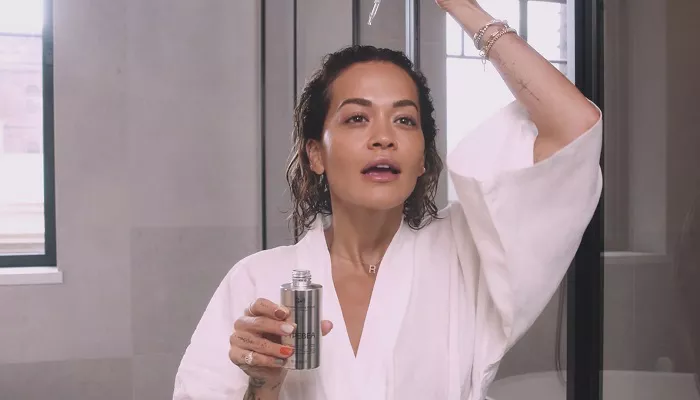The UK hair care market is poised for steady growth, with projections indicating a compound annual growth rate (CAGR) of 4.5% through 2030. This trend is driven by increasing awareness around scalp health, a rise in hair loss concerns, and a marked consumer shift toward natural, plant-based products.
With approximately 8 million women in the UK reportedly experiencing hair loss, demand for tailored solutions addressing thinning hair, dandruff, and scalp sensitivity is on the rise. This shift is reshaping the industry, prompting brands to develop products that support both therapeutic care and preventive maintenance.
Clean and Functional Products Lead Demand
Environmental stressors such as heat styling, chemical treatments, and pollution are accelerating the deterioration of hair quality. As a result, more consumers are adopting comprehensive hair care steps to protect and strengthen their hair. Brands have responded with targeted product lines focusing on strengthening strands, preserving color, and minimizing breakage.
The shampoo category remains a top performer, with consumers increasingly opting for sulfate-free, paraben-free, and vegan formulas. Ingredient-conscious shoppers—particularly those with sensitive scalps—are prioritizing products that maintain natural oils and reduce irritation. This trend extends to male consumers as well, with brands like Jason (Hain Celestial Group) introducing plant-based shampoo-conditioners specifically designed for men.
Marketing Strategies Elevate Brand Visibility
Leading hair care companies are investing heavily in advertising, especially on social media platforms such as Instagram, TikTok, and YouTube. These platforms are proving particularly effective in engaging Gen Z and millennial audiences.
Global players such as L’Oréal and Procter & Gamble have leveraged celebrity endorsements to boost product appeal. For instance, L’Oréal’s 2022 collaboration with singer Gabriella Wilson for its Dream Lengths Curls shampoo highlighted features such as curl definition and damage control. Meanwhile, Kao Corporation spent over USD 563 million globally in 2021 on advertising, underlining the importance of visibility in a crowded market.
Product Segmentation Reflects Consumer Needs
By Product Type:
Shampoo: Continues to dominate, especially variants that address specific needs like dandruff control, color protection, and scalp care.
Conditioner: Often used in tandem with shampoos to reduce frizz and restore moisture in damaged hair.
Hair Oils: Gaining traction in the natural beauty segment for pre-wash treatments and scalp massages.
Styling Products: Demand is growing for lightweight, non-greasy formulations.
Hair Colorants: Popular for their long-lasting color and reduced irritation profiles.
By End User:
Men: Once underserved, now increasingly catered to with products for hair thinning and grooming.
Women: The largest consumer group, with strong interest in products offering volume, repair, and color longevity.
Unisex: A growing segment driven by convenience and household grooming routines.
By Distribution Channel:
Supermarkets/Hypermarkets: Continue to lead thanks to accessibility and broad product selection.
Specialty Stores/Salons: Preferred by consumers seeking premium or professional-grade products.
Online Retail: The fastest-growing channel, bolstered by influencer marketing and product reviews.
Key Players and Competitive Strategies
The market features a blend of global corporations and regional brands, with innovation, strategic partnerships, and multichannel engagement at the core of success.
L’Oréal S.A.: Maintains leadership with brands like Kérastase and L’Oréal Paris across mass and premium categories.
Procter & Gamble: Stays competitive with well-known names like Pantene, focusing on hair fall control and color protection.
Unilever PLC: Targets sustainability-conscious consumers with natural product lines.
Kao Corporation: Supports growth through high marketing spend and product innovation.
Shiseido Co., Ltd.: Leads in the premium segment, especially with hydration-focused and scalp-friendly formulations.
Outlook: Personalization and Natural Formulas Will Shape the Future
The future of the UK hair care market lies in personalization and transparency. As consumers demand products aligned with their individual concerns—from dryness and breakage to color fading—brands that deliver clear, effective, and clean-label solutions will have a competitive edge.
The ongoing popularity of plant-based and organic hair care, combined with increased online engagement and product education, will be key growth factors. Companies that blend efficacy with authenticity, and reach customers through a mix of digital and physical channels, are expected to thrive.
With a projected CAGR of 4.5%, the UK hair care market is on a resilient upward path. As consumers continue to prioritize hair health advice and adopt more holistic routines, the sector will remain dynamic, inclusive, and innovation-driven.
Related Topics:
- Wet Hair Habit Could Trigger Hair Loss, Experts Warn
- Hair Extensions Get a Modern Makeover with Game-Changing Care Line
- Expert Hair Care Tips to Protect Against Chlorine Damage


